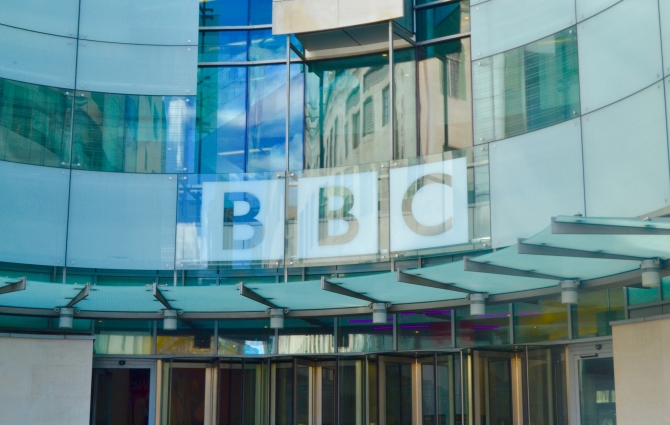
At the Oxford Media Convention, Damian Tambini interviewed Dame Colette Bowe, the outgoing Chairman of the board of Ofcom. This is an edited extract from that interview.
Damian: Why didn’t Ofcom renew your contract?
Colette: Ofcom wasn’t asked to renew my contract. When I was appointed, which was on a five year renewable contract, I should have seen that for an independent regulator to be appointed on a renewable contract, there’s possibly an issue there. So once I was in the role, I decided and communicated it to both the Secretaries of State that had been in the department while I was at Ofcom that I didn’t wish to have my contract renewed at the end of the period which is the end of next month, because I felt that it was extremely important for the Chairman of an independent regulator to have a fixed term. I think five years is about the right fixed period, and I think that the fixed term gives an important signal about independence.
I think your successor has been appointed for three years. Do you see this kind of arrangement – with the potential for seeking renewal – as a problem for independence? Wouldn’t it follow logically?
There are two things in your question: one is a three-year term, and the other is renewability. Fortunately, Patricia Hodgson has already served on the Board of Ofcom as Deputy Chairman for several years, so she’s got a deep knowledge of the Ofcom work. She also of course knows a lot about our world through her long spell at the BBC, both as an Executive and on the BBC Trust. So, yes, of course, Patricia can very, very effectively lead Ofcom for a period of three years if that is what the term comes to be. But I personally believe that renewable contracts are not actually the right way to go for the Chairmen of independent regulators.
If you look at what’s happened in energy regulation, for example, around the assertion that has been made that regulators have been ineffective, that Government can step in rather abruptly. Is there a difference in communications, is independence more important?
Is independence more important in communications than energy? That’s quite a good exam question, actually. I think people with absolutely staggering and colossal energy bills might want to say ‘Hmmm’. Of course what they would have forgotten is the reason they are not facing colossal and staggering bills for their mobile phones, which have in fact got cheaper, is because of effective regulation. But the same principle applies.,. But I’m by no means an expert on energy. The thing to remember is we all operate under statutes. It’s Parliament that is the guarantee of our independence. Once I’m appointed, and once my successor is appointed, our accountability goes to Parliament. And therefore, the idea that a government can kind of step in and say ‘You’re not doing this’, or ‘You’re doing that’, it doesn’t work like that, actually. If a government wants to change our responsibilities, it has to go and ask Parliament to do it.
Just, generally, how are we doing with policymaking in this area? Your Chairmanship of Ofcom has straddled two governments. You were appointed under the last government, and we all remember the famous ‘bonfire of the Quangos speech’, when David Cameron said ‘Ofcom as we know it will cease to exist’.
Yup, strangely I remember that one.
And in particular, targeted the policy advice function of Ofcom. Now, if I could just link this to another theme that I hear quite often from the policymaking community: We’ve waited for a green paper, we’ve waited for a white paper, there’s nothing approaching what we described today as an industrial policy strategy for the sector, and that has something to do with the capacity of DCMS. Now, people might argue that some of this capacity is within Ofcom. And you could make a public interest argument that something is going wrong here. If there are sensitivities about independence, there are sensitivities about that relationship with government, and even if there is something we can think about in the overall relationship to the Government and the policy advice function, or do you think these things are working perfectly well?
I think there are several things going on in that question, Damian. One is why we have a green paper and a white paper, but no legislation. And frankly, I don’t know. Sometimes you know, nothing’s been decided yet, we all know how it works, individual government departments have to bid for space in the legislative program, and I know not why. I’m not party to any of that. I think your underlying point is has that department got the capability to carry through legislation, and all of that. Well, you know, it’s a matter for the Government to make sure that it has got legislative capability. You can’t outsource the capability to conduct legislation, you absolutely can’t… Ofcom and policy-making, what Ofcom does is they’re keeper of the facts. We do a lot of research, it’s been constantly referenced in this conference today, and I’m very proud of that. If the Government intends and proposes to legislate, then it is for the Government to ensure that it has the means to do that. I don’t think you can kind of push it off onto another unelected body.
In a public body of Ofcom, one of the roles of Chair as part of oversight and thinking about the responsibilities of a public body, which is spending public money. So I want to ask you about a scenario. Just imagine that you’ve just taken over Ofcom. And you came in and found out as Chair that a number of senior executives have been paid off with large golden handshakes in the six figures, and were receiving extremely expensive pensions. How would you deal with a situation like that?
You’ve asked me how I would feel if I came in and discovered that. The answer is I don’t think that there would be an issue around ‘discovery’, because, in the case of Ofcom, there is a Board, which has a majority of non-executives on it. There is a Remuneration Committee. There is an Audit and Risk Committee. And all of the major decisions of this governance structure are not only challenged through a Board that is dominated by non-executives – who I have to say are quite a ‘scaley’ bunch – but this is all disclosed. Everything an organisation like Ofcom does is disclosed in its annual report and accounts.
So you’re saying it could never happen at Ofcom. Why did it happen at the BBC?
I was trying in a very subtle way to point out that, in order to make sure that you don’t have situations where those kinds of things happen, you have to have strong governance dominated by, I have to say, non-executives who are not part of the Executive part of the organisation. That was the point I was tactfully trying to make. Because as you know, I’m a very tactful person.
Very good, I’m not. There are a number of ways in which the BBC is held to account by Ofcom. What future role do you see for Ofcom in relation to the BBC? Were you asked, could you regulate the BBC? What would be the challenges or problems you might see on the horizon?
I think the ‘problem’ might be a problem about how comfortable the public felt about that. I said in my opening remarks that we’ve got to keep very focused on what the viewers and listeners want. The part of the BBC’s output that we don’t regulate is the part where perhaps their independence is most salient, which is their journalism. Of course, we could regulate it. We regulate all the rest of broadcast journalism in the UK. And as we’ve often said, I don’t think anybody would, for example, say that the broadcast journalism of Channel 4, is somehow damaged or chilled by having been done under Ofcom regulation. But the BBC is a different beast. Although my short technical answer to your question ‘Could you do it?’; the answer is yes. I think we would all collectively have to be very clear about whether that really continued to give the general public continuing, real confidence in the integrity and preservation of the BBC’s independence. Now I’m not saying that therefore, it would be damaged if Ofcom were to be regulating it, far from that. I’m just saying, you’ve got to be careful in how you think about that. I think that we should be careful that, we don’t do anything that would damage something that is really important to all of us, which is the independence of the BBC, particularly in its journalism.
To say ‘criticise’ may be a bit strong, but you’ve made the point that you were concerned about including the license fee payers, listeners, and viewers in discussions about the future of the BBC, because maybe that doesn’t happen enough. You could make the same point about Ofcom. One of the things you are credited with in your Ofcom consumer panel role is making Ofcom more consumer-oriented. But is there more you can do in terms of, for example, complaints, relationships with consumers, research, understanding those harms that do arise in consumer-interest… Is there something more that could be done?
I very much hope, my successors will take on this job. I think there is more that we can do. I mean, we’ve come a long way. You and one other person in this room were also members of that early Consumer Panel, and I think we did do good work with Ofcom. But I think there is more to develop the citizen side of things. It may well be the future Consumer Panel should morph into a consumer and citizen panel, especially as the media landscape changes, as new challenges emerge. For example, contactless payments, which are going to be regulated by one of the city regulators. But actually, it may well be that issues come up that are both consumer-related, but also citizen issues, which perhaps a future incarnation of the consumer panel ought to be tackling. I think, as the sector develops, and the amount of people who do this technology develops, it’s a very interesting thing to think, about whether Ofcom could turn up the wick, if you like, on its consumer and citizen responsibilities.
This interview is the transcript of the conversation between Damian Tambini and Colette Bowe that was part of the programme at the Oxford Media Convention on 26 February. The transcript, which was prepared by MPP Assistant Kailey Fuller Jackson, has been edited slightly for readability.





